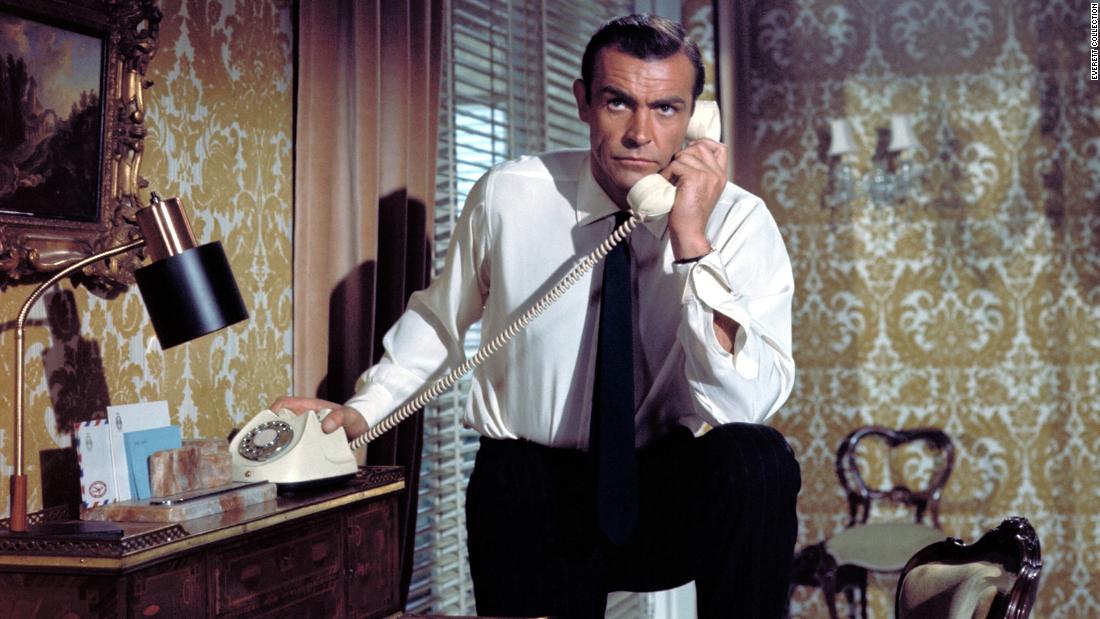
Even without 007 and his "license to kill," Connery, whose death at age 90 was confirmed early Saturday, would still deserve his knighthood -- and his global reputation as one of the most versatile of movie stars.
Think of his young tyro days, when Connery's brash, brawny exuberance got audiences' attention in such myriad fare as "Darby O'Gill and the Little People" (1959) or "The Longest Day" (1962). Or consider Connery in greybeard, during the autumn of his career. He played a crime-solving monk in "The Name of the Rose" (1986), a hard-bitten Chicago patrolman in "The Untouchables" (1987), for which he won a Best Supporting Actor Oscar, or Harrison Ford's father in "Indiana Jones and the Last Crusade" (1989). He was one of those rare actors who was always recognizable in whatever he played while making each role his own.
David Thomson, in his "New Biographical Dictionary of Film," compared him to Clark Gable "who had the same mix of mustache and twinkle and a similar hint of uncompromising force." As with Gable, Connery also carried an unusually harmonious combination of street brawler and sophisticate -- the kind of elegant ruffian who could be funny or tragic, roguish or tormented, noble or weaselly.
Connery's do-it-all-and-do-it-often work ethic was obscured by the James Bond image, which helps explains why he was so desperate to get out from under one of the most spectacularly successful tentpoles in movie history. He was the first Bond and, to this day, the most definitive because he carried the "cruel mouth" and "short, black hair" that Ian Fleming used as physical descriptions of his British secret service agent years before the film adaptations.
If, during Connery's tenure as Bond, you wanted to see what he could do away from whiz-bang set pieces, erotic horseplay and elaborate gadgetry, there were (to my mind) two standout movies: "The Hill," Sidney Lumet's 1965 World War II epic which Connery dominates as a British army sergeant who carries his anti-authoritarian tendencies with him into a desert stockade, and "A Fine Madness," Irvin Kershner's 1966 comedy in which Connery plays a volcanically moody poet whose writer's block rampages over everything and everyone in his path. (The two must have enjoyed working together since Kershner later directed Connery again in his one-off return as Bond in the 1983 valedictory, "Never Say Never Again.")
After leaving the Aston Martin in the garage for Moore and others, Connery's stature kept growing as did the nature of his roles, whether as a swashbuckling Moroccan insurrectionist in 1975's "The Wind and the Lion," or as a gracefully aging Robin Hood in 1976's "Robin and Marian." He could also dial down his own magnetism to great effect as in 1990's "The Russia House," an adaptation of John le Carre's novel about a semi-retired publisher reluctantly pressed into undercover duty in the Glasnost-era Soviet Union. (One remembers watching Connery's character fumbling desperately with a spy gadget and restraining the impulse to cry to the screen, "Oh, come on! You know how to use that!")
If my own preferences of Connery's work lean more towards the urbane -- notably his elegant, deadpan detective in 1993's "Rising Sun" -- then it must reflect my own inability to let go of him as the definitive Bond.
But oddly enough, it's not his Bond that I best remember now that he's gone. It's Danny Dravot, the renegade ex-army sergeant in John Huston's 1975 adaptation of Rudyard Kipling's "The Man Who Would Be King." Danny is very much in the tradition of Connery's early roughneck roles, an insubordinate rugged individualist who somehow stumbles into becoming ruler of a Middle Eastern land and, at first, is magnanimously suited for the job -- until he isn't.
From hero to anti-hero and back again. That will, for all time, be the perfect pattern for Sean Connery's roles. And James Bond? He's OK, too.
"work" - Google News
November 01, 2020 at 06:28AM
https://ift.tt/2TFb7R4
Sean Connery's image obscured his work ethic and versatility - CNN
"work" - Google News
https://ift.tt/3bUEaYA
Bagikan Berita Ini














0 Response to "Sean Connery's image obscured his work ethic and versatility - CNN"
Post a Comment